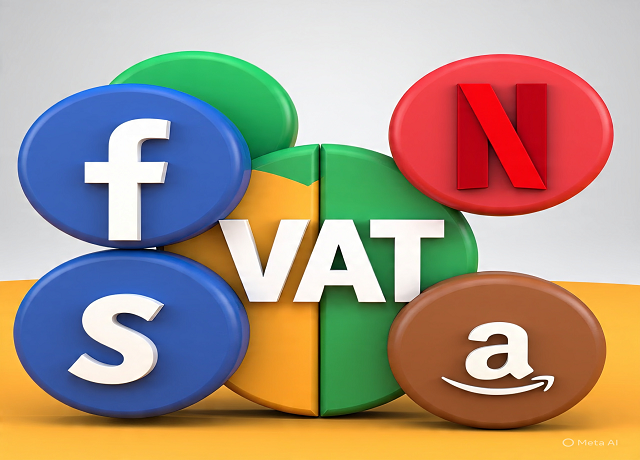Nigeria has successfully collected more than ₦600 billion in Value Added Tax (VAT) from global digital service providers, including Facebook, Amazon, and Netflix, following amendments to the VAT Act that brought such companies into the tax net.
The Special Adviser on Tax Policy to the Chairman of the Tax Reforms Committee, Mr. Mathew Osanekwu, disclosed this during a workshop for media practitioners in Abuja on Wednesday.
“These are not Nigerian entities, but they are now paying VAT under Section 10 of the VAT Act. They are registered in Nigeria and are also appointed as agents of collection,” Osanekwu explained.
He stressed that the move aligns with global best practices, ensuring Nigeria benefits from taxes on services consumed locally but delivered by foreign companies.
Amid this milestone, the Federal Government also moved to dispel speculation that President Bola Tinubu’s fiscal and tax reforms have introduced new taxes.
Officials clarified that the reforms, set to take effect in January 2026, are primarily aimed at reducing the tax burden on vulnerable groups and improving compliance.
Chairman of the Presidential Committee on Fiscal Policy and Tax Reforms, Professor Taiwo Oyedele, explained: “It’s not a new tax. Some said the tax is being proposed. The tax is not being proposed. Some believe this president has introduced tax after tax, and I challenge them to point to one newly introduced tax.”
Oyedele reminded participants that in July 2023, barely two months after assuming office, President Tinubu signed four executive orders suspending taxes hurriedly introduced in the final days of the previous administration. These included excise duties on plastic items and vehicle importation.
“Many of us are not even aware because this president did not allow those taxes to take effect. They were suspended and eventually removed,” Oyedele added, and further clarified that the much-debated Cybersecurity Levy was enacted years ago, stressing that Tinubu’s administration did not originate it.
Nigeria’s tax-to-GDP ratio currently stands at 10.8 per cent, among the lowest globally and far below the African average of 16 per cent and the global benchmark of 30 per cent. The reforms are expected to consolidate multiple taxes, remove overlaps, and tie levies to transparent, project-linked spending.
“This reform is the most progressive Nigeria has ever seen. It eliminates taxes on the poor, reduces the burden on the middle class, and targets higher-income earners fairly,” Oyedele noted.
The new framework exempts Nigerians earning less than ₦800,000 annually from paying personal income tax on that amount. Small businesses with earnings under ₦100 million a year will also enjoy a 0 per cent corporate tax rate.
Oyedele also painted a sobering picture of Nigeria’s economy in May 2023, describing it as “on the verge of collapse.”
He explained that the country’s foreign reserves were heavily constrained by unpaid forward contracts and subsidy-induced debt by the Nigerian National Petroleum Company Limited (NNPCL). With only about 200,000 barrels of free crude available due to pre-sales, Nigeria’s fiscal system was “running on fumes.”
He warned that continuing to finance fuel subsidies with borrowed money secured against future crude production would have created a crisis similar to Sri Lanka’s shutdown of fuel imports.
“People may ask whether life is better now than it was two years ago. The right question is: would life have been better today if those reforms hadn’t happened?” Oyedele asked.

